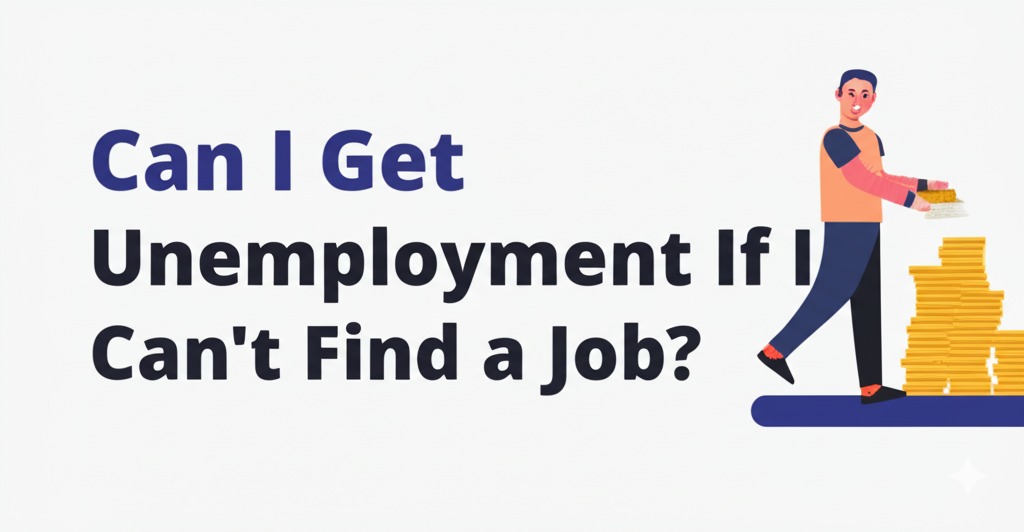
Struggling to find a job in today’s competitive market? You’re not alone—and if you’re wondering whether unemployment benefits can help you while you continue your search, you’ve come to the right place. In this article, we’ll break down who qualifies, how to apply, and what to expect if you’re out of work but actively looking.
Let’s dive into the key question: Can you get unemployment benefits if you can’t find a job?
Understanding Unemployment Benefits
What Are Unemployment Benefits?
Unemployment benefits are financial payments provided by state governments to eligible workers who are temporarily out of work through no fault of their own. These benefits are designed to support you while you search for new employment.
Key points:
- Funded through employer-paid taxes
- Typically cover a portion of your previous income
- Last for a limited time (usually up to 26 weeks, but this varies by state)
Who Is Eligible?
Eligibility can vary slightly depending on your state, but common requirements include:
- You must be unemployed through no fault of your own
- You must have earned a minimum amount of wages in your base period
- You must be physically able, available, and actively looking for work
Can You Qualify If You Can’t Find a Job?
The Short Answer: Yes, But With Conditions
If you lost your job and you’re actively seeking new employment, you may be eligible for unemployment benefits—even if your job search takes longer than expected.
Key Requirements to Keep in Mind:
- You must be actively looking for work.
Most states require you to report job search activities weekly. This can include:- Applying to jobs online
- Attending interviews
- Registering with a state employment agency
- You must not turn down suitable work.
If you’re offered a reasonable job and refuse it without a valid reason, you could lose your benefits. - You must be available to work.
That means you can’t be in school full-time or dealing with health issues that prevent you from working.
Tip: Keep records of your job applications and correspondence to show proof of your job search.
Common Scenarios: Do You Still Qualify?
Scenario 1: You Quit Your Job
In most cases, quitting disqualifies you from receiving unemployment unless you had a good cause such as:
- Unsafe working conditions
- Harassment
- Significant changes in job duties or pay
Scenario 2: You Were Fired
Being fired doesn’t automatically disqualify you. If you were terminated for reasons other than serious misconduct, you might still be eligible.
Scenario 3: You’re a Recent Graduate
If you’ve never worked or haven’t worked enough during the base period, you likely won’t qualify for benefits—even if you can’t find a job.
How to Apply for Unemployment Benefits
Applying for benefits is typically done online through your state’s unemployment office. Here’s a general step-by-step process:
- Visit your state’s unemployment website.
- Create an account and complete the application.
- Provide accurate information about your work history and reason for unemployment.
- Certify weekly that you’re still eligible and job-hunting.
Pro tip: File your claim as soon as you become unemployed to avoid delays in receiving benefits.
How Long Can You Receive Benefits?
Most states offer up to 26 weeks of benefits, but this can vary. Some states provide less, while others extend benefits during periods of high unemployment.
What Happens If You Still Can’t Find Work?
If your benefits run out and you’re still unemployed:
- Look into Extended Benefits (EB) programs if available in your state
- Consider applying for other forms of financial assistance or job retraining programs
Tips to Stay Eligible and Maximize Your Benefits
- Stay organized. Track all your job applications and activities.
- Be honest. Falsifying information can result in penalties or having to repay benefits.
- Update your resume and skills. Consider free or low-cost training programs to increase your chances of employment.
Final Thoughts: Yes, You Can Get Unemployment If You’re Job-Hunting
So, can you get unemployment if you can’t find a job? Yes—as long as you meet the eligibility criteria and continue your job search in good faith. These benefits are there to help bridge the gap while you land your next opportunity.
If you’re unsure whether you qualify, don’t hesitate to reach out to your state’s unemployment office or check their official website. Getting clear answers early on can save you time and stress.

Andre Cuevas provides career insights, job search strategies, and professional advice to help individuals navigate the job market and achieve their career goals.





